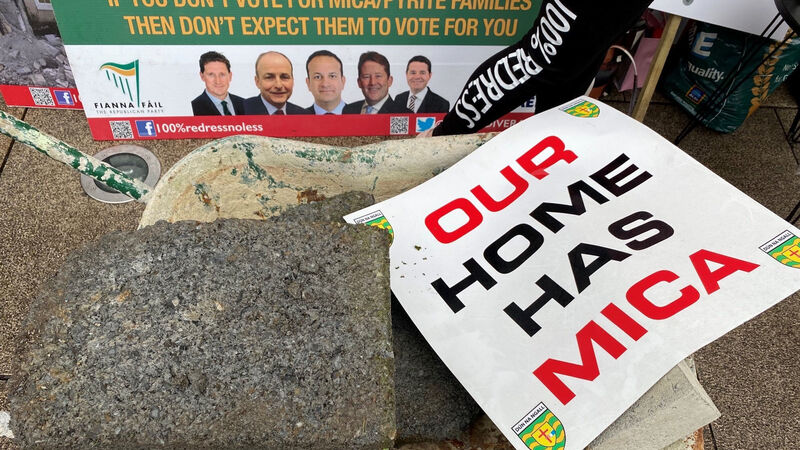Q&A: What does the revised redress scheme mean for homeowners hit by the mica crisis?

A sign from homeowners affected by mica protesting outside the Dáil earlier this year. Picture: Dominic McGrath/PA Wire
The updated €2.2bn mica redress scheme will cover 7,500 properties, including 1,000 social homes.













